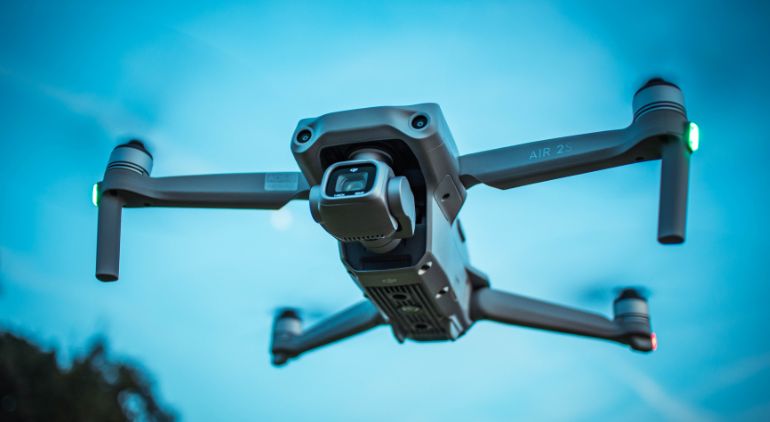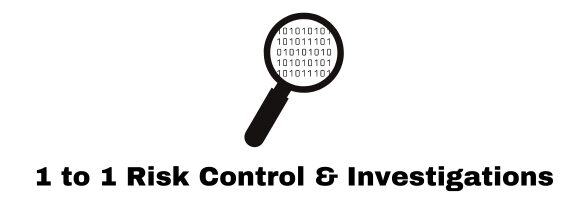405-458-5710
Confidentiality Guaranteed
405-458-5710
Confidentiality Guaranteed
You are Reading:
-
1 to 1 Risk Control & Investigations > Blog > Digital Forensics > Exploring Drone Forensics

Jun
Exploring Drone Forensics
What Can Be Obtained and the Benefits to Clients
Drones, or unmanned aerial vehicles (UAVs), have become increasingly popular for both recreational and commercial use. However, as their prevalence has grown, so too have the potential risks and security concerns associated with them. Drone forensics is a burgeoning field that focuses on extracting and analyzing data from drones to investigate incidents, ensure compliance, and enhance security. This blog post explores what can be obtained from drone forensics and the benefits it provides to clients.
What is Drone Forensics?
Drone forensics involves the recovery and analysis of data from drones and their associated systems. This process is similar to traditional digital forensics but focuses specifically on the unique aspects of UAVs. By examining the drone’s hardware, software, and data, forensic experts can uncover critical information about the drone’s activities, origins, and potential misuse.
Key Components of Drone Forensics
Drone forensics encompasses several key components that are crucial for a comprehensive investigation:
Flight Data Logs
Drones typically record detailed flight data logs, which include information about the drone’s altitude, speed, GPS coordinates, flight path, and timestamps. Analyzing these logs can reveal the drone’s movements and activities during specific time periods.
- Example: Flight data logs can help determine whether a drone was operating within restricted airspace or violating flight regulations.
Onboard Sensors and Cameras
Many drones are equipped with sensors and cameras that capture video and photographic evidence during flights. Analyzing this visual data can provide insights into the drone’s surroundings and activities.
- Example: Footage from a drone’s camera can be used to identify unauthorized surveillance or capture evidence of illegal activities.
Communication Systems
Drones communicate with their controllers using various wireless technologies, such as Wi-Fi, radio frequency (RF), or cellular networks. Forensic experts can analyze these communication logs to understand how the drone was controlled and identify the source of the signals.
- Example: Communication logs can help trace the origin of a drone’s control signals to identify the operator’s location.
Firmware and Software
Examining the drone’s firmware and software can reveal valuable information about its configuration, capabilities, and any modifications made by the operator. This analysis can also identify vulnerabilities or malware that may have been used to compromise the drone.
- Example: Analyzing the firmware can uncover unauthorized modifications that enable illegal activities, such as disabling geofencing restrictions.
Storage Devices
Drones often contain onboard storage devices, such as SD cards or internal memory, where data is stored. Forensic experts can recover deleted files, logs, and other data from these storage devices to gather additional evidence.
- Example: Recovering deleted video footage from an SD card can provide crucial evidence for an investigation.
Benefits of Drone Forensics to Clients
Drone forensics offers numerous benefits to clients across various industries. Here are some of the key advantages:
Enhanced Security and Risk Mitigation
Drone forensics can help organizations identify and mitigate security risks associated with unauthorized drone activities. By understanding the drone’s movements, communication patterns, and data, clients can take proactive measures to prevent security breaches and protect sensitive areas.
- Example: A critical infrastructure facility can use drone forensics to identify and neutralize potential threats from unauthorized drones, enhancing overall security.
Regulatory Compliance
Compliance with aviation and privacy regulations is essential for organizations using drones. Drone forensics can help clients ensure that their drone operations adhere to legal requirements and industry standards. This includes verifying that drones are operating within approved flight zones, adhering to altitude limits, and respecting privacy boundaries.
- Example: A construction company can use drone forensics to demonstrate compliance with FAA regulations, avoiding potential fines and legal issues.
Investigating Incidents and Accidents
In the event of a drone-related incident or accident, forensic analysis can provide critical insights into the cause and circumstances. This information is invaluable for insurance claims, legal proceedings, and improving safety protocols.
- Example: After a drone crash, forensic analysis of flight data logs and onboard sensors can help determine whether mechanical failure, pilot error, or external factors caused the incident.
Intellectual Property Protection
Drone forensics can help protect intellectual property by identifying unauthorized surveillance or data theft activities. By analyzing the drone’s data, organizations can detect and respond to potential IP breaches, safeguarding their valuable assets.
- Example: A technology company can use drone forensics to investigate and prevent industrial espionage attempts involving unauthorized drone surveillance.
Legal and Dispute Resolution
Drone forensics provides robust evidence that can be used in legal disputes and resolution processes. This evidence can support claims, defend against allegations, and facilitate fair outcomes in legal proceedings.
- Example: In a property dispute involving drone surveillance, forensic analysis of the drone’s flight data and camera footage can provide clear evidence to support the case.
Enhancing Operational Efficiency
For businesses that rely on drones for operations, forensic analysis can identify areas for improvement and optimization. By understanding how drones are used and identifying any inefficiencies, organizations can enhance their drone operations’ overall efficiency and effectiveness.
- Example: A logistics company can use drone forensics to analyze delivery routes and optimize flight paths, reducing fuel consumption and improving delivery times.
Protecting Privacy
With the increasing use of drones, concerns about privacy violations have grown. Drone forensics can help identify and address privacy breaches by analyzing the data collected by drones and ensuring that they adhere to privacy regulations.
- Example: A residential community can use drone forensics to investigate complaints of unauthorized drone surveillance and take appropriate action to protect residents’ privacy.
Real-World Applications of Drone Forensics
Here are some real-world applications of drone forensics:
- Law Enforcement: Law enforcement agencies use drone forensics to investigate criminal activities involving drones, such as smuggling, unauthorized surveillance, and illegal aerial photography.
- Corporate Security: Corporations use drone forensics to protect their assets, investigate security breaches, and ensure compliance with regulations.
- Insurance: Insurance companies use drone forensics to investigate claims involving drone-related incidents, such as property damage or personal injury.
- Military: Military organizations use drone forensics to analyze enemy drones, gather intelligence, and develop countermeasures.
Drone forensics is a powerful tool that provides valuable insights and benefits to clients across various industries. By extracting and analyzing data from drones, forensic experts can enhance security, ensure compliance, investigate incidents, protect intellectual property, and support legal proceedings. As drones become more prevalent, the importance of drone forensics will continue to grow, helping organizations navigate the complexities of UAV operations and mitigate associated risks.
- AI
- Bug Sweeps
- Car Security
- Cyber Crime
- Cyber-Stalking
- Digital Forensics
- Fraud
- Geo-Political
- GPS Tracking
- Hidden Cameras
- Identity Theft
- Investigations
- Misinformation
- Mobile Device Forensics
- Mobile Device Security
- Operational Security
- Privacy
- Psychology
- Situational Awareness
- Social Media Investigations
- Stalking
- Surveillance
- Uncategorized
